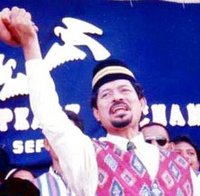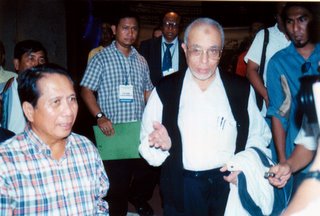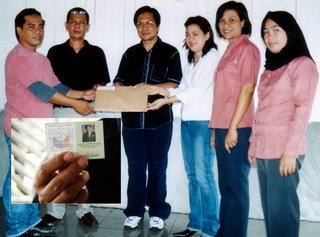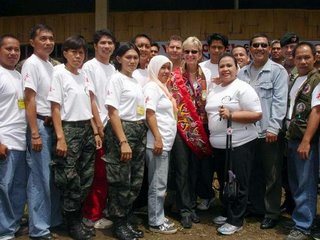What Muslims say about Dan Brown's novel, The Da Vinci Code? 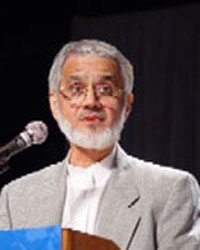 Dr. Muzammil H. Siddiqi is the president of the Fiqh Council of North America who delivered this Khutbah at the Islamic Society of Orange County, California, United States on Rabi` al-Thani 21, 1427/ May 19, 2006.Prophet Jesus and The Da Vinci Codetext Dr. Muzammil H. Siddiqi
Dr. Muzammil H. Siddiqi is the president of the Fiqh Council of North America who delivered this Khutbah at the Islamic Society of Orange County, California, United States on Rabi` al-Thani 21, 1427/ May 19, 2006.Prophet Jesus and The Da Vinci Codetext Dr. Muzammil H. Siddiqi(Say ye: We believe in Allah, and the revelation given to us, and to Abraham, Isma`il, Isaac, Jacob, and the Tribes, and that given to Moses and Jesus, and that given to (all) Prophets from their Lord: we make no difference between one and another of them: and we bow to Allah (in Islam).) (Al-Baqarah 2:136)
(Behold! the angels said: O Mary! Allah giveth Thee glad tidings of a Word from Him: his name will be Christ Jesus, the son of Mary, held in honor in this world and the Hereafter and of (the company of) those nearest to Allah.) (Aal `Imran 3:45)
We believe in all the prophets and messengers of Allah. We respect and honor all of them without any discrimination. We believe that all prophets preached the message of tawheed (oneness of Allah) and all of them invited human beings to worship Allah alone and to live righteous lives.
Prophet Muhammad (peace and blessings be upon him) was not the only prophet of God, but he was the last and final prophet of God. Prophet Muhammad was not the founder of Islam; all prophets submitted to God (Muslims) and followed the way of submission to God (Islam). We believe that Jesus was one of the great prophets of God.
In the Qur'an, Jesus is called `Isa. He is also known as Al-Masih (the messiah) and Ibn Maryam (son of Mary). He has many other honorable names and titles in the Qur'an. He is a highly respected religious figure. Every Muslim believes in him, honors him, and loves him. His mother Mary is also highly respected, loved, and honored. There are hundreds of thousands of Muslim men all over the world who feel proud and blessed to have the name `Isa, and there are thousands of Muslim women who feel honored and blessed to be called Maryam.
There is a big controversy going on all over the world at this time about Dan Brown's novel, The Da Vinci Code. This novel is a big thriller, and until now, more than 45 million copies have been sold. Today, a movie based on this novel will be released. Many Christians, especially Catholics, are outraged with this novel.
In several countries, Christians are protesting and asking their governments to ban this novel and its movie. Some bishops and cardinals referred to the Danish cartoons against Prophet Muhammad and said that if Muslims were angry with a few cartoons, we should be even more angry with this book. Some Muslims and non-Muslims are asking for our reactions to this book.
We as Muslims do not want to be known as people who react only when something wrong is done to the blessed name of our Prophet Muhammad. We stand for the respect of all religious figures of all religions. Furthermore, Jesus (peace be upon him) is also a blessed prophet for us. We believe in him and honor him. We also have something to say about this novel and movie.
There are two things that I would like to say about The Da Vinci Code. One is positive and the other is negative. The positive thing is that it says that for the first four centuries, Jesus was known only as a prophet of God, and not God. At the Council of Nicea around the year 325 CE, the Emperor Constantine and some bishops changed the true teachings of Jesus.
The Da Vinci Code also says that Jesus (peace be upon him) married one of his female disciples, Mary Magdalene, and had children and that his descendants still exist today. Although the Qur'an does not say anything about Jesus's marriage, his wife, or his children (neither does the New Testament), there is nothing wrong, from the Islamic point of view, if he were married and had children. Allah says in the Qur'an, (We did send Messengers before thee, and appointed for them wives and children: and it was never the part of a Messenger to bring a Sign except as Allah permitted (or commanded). For each period is a Book (revealed)) (Hud 13:38).
Some Christians consider this story about Jesus to be blasphemous. According to them, to say that Jesus was married means that he is not God. Although they say that God had a son, they say that Jesus could not have had a son. However, as Muslims, we say that just because Jesus wasn't married doesn't make him God. Prophet Yahya (John the Baptist), who was Jesus' contemporary, was not married, yet no one considered him to be divine.
Celibacy does not make any person divine. If Jesus were married, then this does not take away his honor because there were many prophets who came before and after him who were married and had offspring. It is interesting to see a number of books produced today by Christian writers that also say that Jesus was not crucified and that he never claimed to be the Son of God. This is what the Qur'an said a long time ago.
There is, however, a negative side of The Da Vinci Code, that we as Muslims should criticize. The Da Vinci Code is a novel, a work of fiction. It does not present facts about Jesus's life in a serious and respectful manner. It has fictionalized his life and story, and in this sense, it has downgraded this great messenger of Allah.
The author of The Da Vinci Code took some historical facts and then spun a mystery story to thrill and chill his readers. Allah's prophets and His messengers should not be treated in this manner. They are entitled to receive utmost honor and respect from us. It is for this reason that Islam forbids making pictures of Allah's prophets and messengers and also forbids creating fictitious stories and movies about them. Islam teaches us that we should present the prophets' life stories with great care, respect, and the utmost authenticity. The Prophet (peace and blessings be upon him) said, "Convey from me even if it is one verse. Speak about Bani Israel without any hesitation; but whosoever tells a lie about me, let him prepare his place in Hell" (Al-Bukhari 3202).
We hope that more and more truth will come out about the life and teachings of Jesus (peace be upon him). We totally reject those who abuse his person through fiction and falsehood. We as Muslims should use this opportunity to inform others about the Islamic position regarding Jesus (peace be upon him). Ameen.MILF endorses banning of ‘Da Vinci’ movie
text Luwaran
In a show of religious respect, the Moro Islamic Liberation Front (MILF) has agreed with the Philippine government to ban the showing of the movie “The Da Vince” in the Philippine theaters, saying it promotes irreligiousness among the predominantly Catholics in this country.
Khaled Musa, Deputy Chairman of the MILF Committee on Information, told Luwaran that such abuse of discretion in the name of freedom of expression does not bring any good to the people.
He said that although the Muslims are not believers of Jesus Christ as God, but they still considers the movie as “blasphemous”, because it attributes to Christ such accusations not befitting him even as a Prophet.
He recalled the latest uproar over the cartoons depicting Prophet Muhammad (Peace be upon him) as a “terrorist” by a Swedish publicist that had resulted in the loss of scores of lives and millions worth of properties when Muslims protested, some violently, in several European, Asian, and African states.
“We agree with the government to ban the showing of the movie,” Musa stressed, adding that freedom of expression should not be allowed to invade the freedom of religion.
Earlier, Executive Secretary Eduardo Ermita said that he considers The Da Vinci Code movie blasphemous and should not be shown in Philippine theaters.
He advised the Movie Television Review and Classification Board (MTRCB) to exercise prudence by not allowing the screening of the film, which is an adaptation from Dan Brown’s best-selling novel that says Jesus Christ married Mary Magdalene, a prostitute, and started a sacred bloodline that still exists in secret.
The book has stirred up intense debate among Christian scholars, some of whom say the story line is blasphemous.
He feared the film could make negative impression on the minds of the youth about Christ, so “it would be better for us as good Catholics or good religious people of any denomination to discourage its showing.”
Archbishop Ramon Arguelles has already launched a campaign to have the film banned, ahead of its planned opening across Asia on May 18.
In 1988, the government banned screenings of The Last Temptation of Christ, another blasphemous movie.
